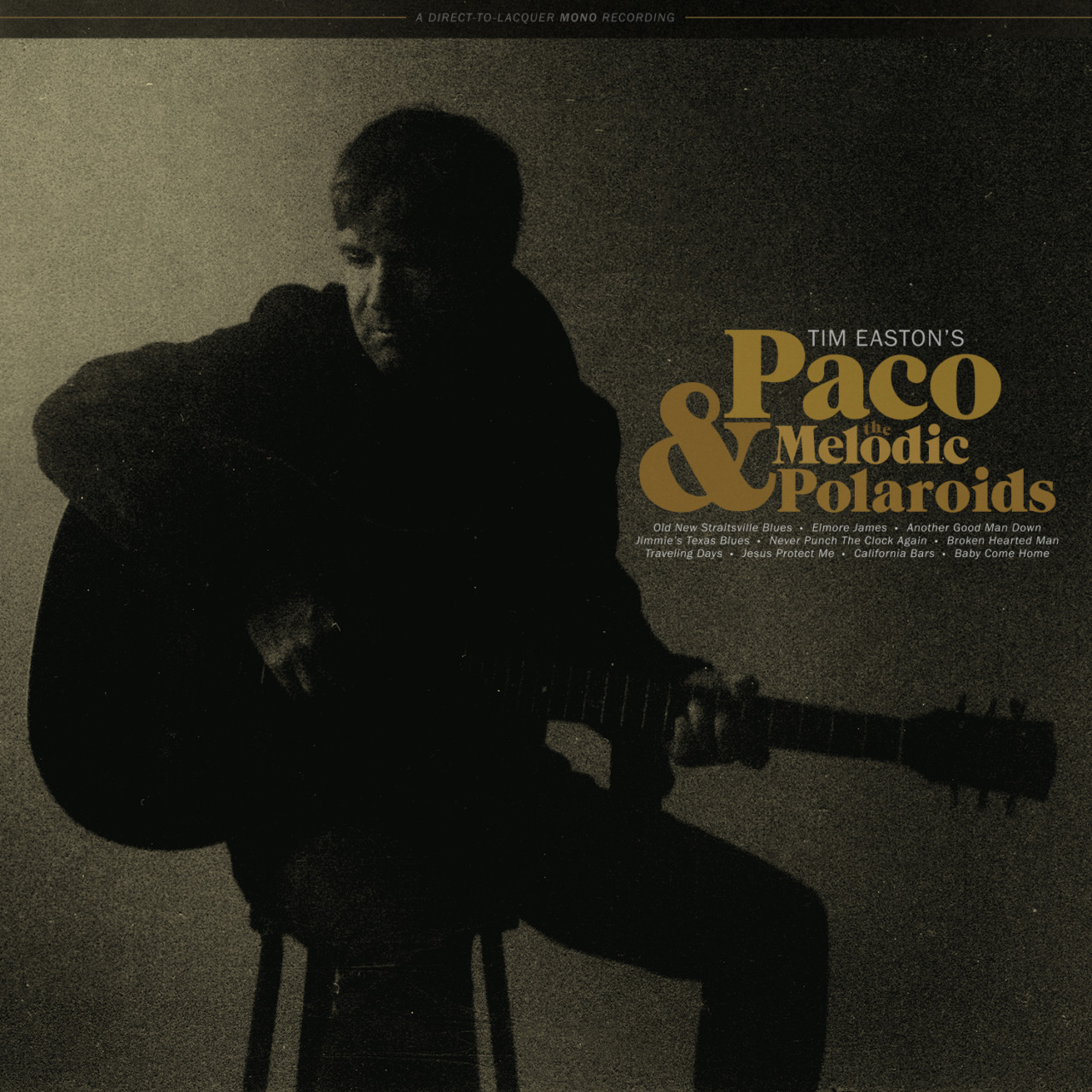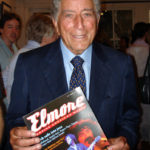Artist: Tim Easton
Album: Paco & The Melodic Polaroids
Label: Campfire Propaganda
Release Date: 4.13.18

Joined at the hip for 30 years, Tim Easton and his faithful black Gibson J-45 acoustic guitar “Paco” have survived busking together in Eastern Europe and miles upon miles of traveling far and wide. Their journeys provided Easton plenty of lyrical fodder for the richly detailed, evocative storytelling on Paco & The Melodic Polaroids, an intimate, spare album of dingy folk and country blues that puts Paco to work.
In quiet emptiness, as if laboring alone in an old church, Easton and Paco communicate via Easton’s refined Travis style thumb picking technique and lightening quick flat picking. Smoky spirals, twisting, turning cartography and artfully sketched-out, charcoal figures are the result, as Easton sings into a single 1940s RCA 74B ribbon microphone for traditional effect. Going really old school, Easton used a direct-to-lacquer recording approach—meaning each song was transmitted through a vintage, portable lathe sending a mono signal direct to a lacquer acetate disc. He only had one chance to capture each performance—no studio tricks allowed.
That’s how folks like The Carter Family and Jimmie Rodgers did it 90 years ago, and if it was good enough for them, by God it’s good enough for Easton. Despite the rushed recording sessions, it doesn’t feel as if Easton is just passing through on Paco & The Melodic Polaroids. These are carefully crafted songs that are built to last, seemingly written in a lonely fleabag motel room with a Bible, a handgun and a bottle of cheap whiskey on the nightstand.
The isolation is palpable in the lovelorn “Broken Hearted Man” and the cautionary cocaine tale “Another Good Man Down,” both awash in vigorous slide guitar fury and the latter succumbing to temptation. Easton doesn’t romanticize the road in the reflective “Old New Straitsville Blues” or “Traveling Days,” drawing instead from personal experiences and observations to paint a more realistic picture of restless wanderlust and the South. The scything hooks of those tracks leave a memorable impression, as does the Johnny Cash-like “Never Punch the Clock Again,” where an attempt to break into the music business takes some wrong turns. That train’s a-comin’ again for Easton.
—Peter Lindblad







Be the first to comment!